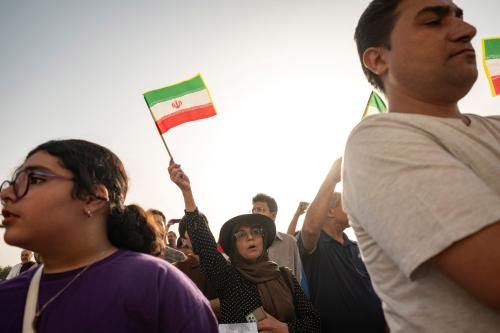Content from the Brookings Doha Center is now archived. In September 2021, after 14 years of impactful partnership, Brookings and the Brookings Doha Center announced that they were ending their affiliation. The Brookings Doha Center is now the Middle East Council on Global Affairs, a separate public policy institution based in Qatar.
Since the announcement of an interim nuclear deal between Iran and six world powers, including Washington, less than two weeks ago, questions and debate surrounding the agreement and its implications for Iran and the wider region have not abated. In this environment of intense discussion on a major foreign policy development, Brookings Institution scholars continue to weigh in on the prospective fall-out of this deal and the longer-term diplomatic environment for Iran.
Bruce Riedel, who directs Brookings’ Intelligence Project and serves as a senior fellow in both the Saban Centerand the Center for 21st Century Security and Intelligence, “An Israeli-Saudi Axis? Not Likely”
Salman Shaikh, director of the Brookings Doha Center and fellow in the Saban Center,
Ibrahim Sharquieh, deputy director of the Brookings Doha Center and fellow in the Saban Center, considers in a piece for Huffington Post entitled “Is Iran’s Nuclear Deal a Model for the Israeli-Palestinian Negotiations?”
Steven Pifer, who directs the Arms Control and Non-Proliferation Initiative and serves as a senior fellow in both Brookings Center on the United States and Europe and the Center for 21st Century Security and Intelligence, examined the implications of the diplomacy for “Would an Iran Deal Obviate Missile Defense in Europe?”
Finally, Saban Center Senior Fellow Kenneth
The Brookings Institution is committed to quality, independence, and impact.
We are supported by a diverse array of funders. In line with our values and policies, each Brookings publication represents the sole views of its author(s).




Commentary
Brookings Experts On Fallout From Iran Deal For The Gulf, The Peace Process And Beyond
December 5, 2013